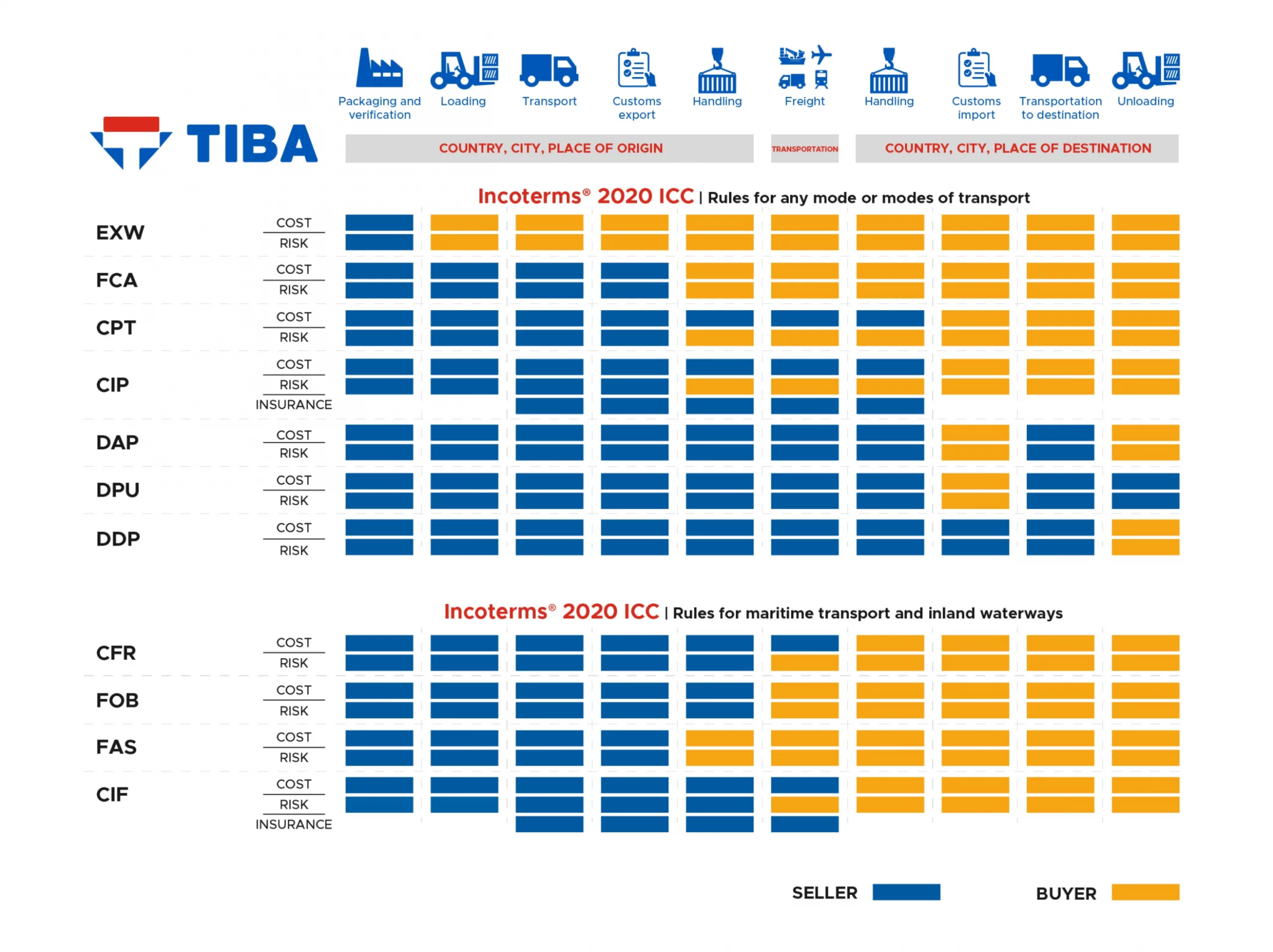Customers who order our products come from different parts of the world. The equipment we offer, including cooking kettles, grinders, fryers, mixers, and other machinery, varies significantly in size and weight. As a result, the transportation cost for each device differs based on distance, shipping method, and customer preferences. Therefore, we calculate transportation costs separately after discussing the details with the customer.
Some customers require assistance with preparing export documents, while others prefer to handle the paperwork themselves. Some choose to pay the transport company directly for the delivery of the equipment, while others request transportation services that include insurance. Additionally, some customers arrange their own transport, using their preferred logistics providers.
EXW – Ex Works
An EX WORKS (EXW) price according to Incoterms® means that the seller will supply the goods to the buyer at the stated price when the goods are made available to the buyer at an agreed location (such as a factory or warehouse), which may or may not be the seller’s premises. In order to make the delivery, the seller is not required to load the goods onto any collection vehicle, nor is he obliged to clear the goods for export, if such clearance is necessary.
The term Ex Works (EXW) is often used by manufacturers and export businesses when making an initial offer to sell goods at no additional cost.
If you are interested in our products and have any questions about shipping, please contact us.
You might be interested…
Incoterms rules define the responsibilities of exporters and importers in the arrangement of shipments and the transfer of liability involved at various stages of the transaction. They are widely used in international commercial transactions or procurement processes and their use is encouraged by trade councils, courts and international lawyers. A series of three-letter trade terms related to common contractual sales practices, the Incoterms rules are intended primarily to clearly communicate the tasks, costs, and risks associated with the global or international transportation and delivery of goods.
The first work published by the International Chamber of Commerce (ICC) on international trade terms was issued in 1923, with the first edition known as Incoterms published in 1936. The Incoterms® rules were amended in 1953, 1967, 1976, 1980, 1990, 2000, and 2010, with the ninth version – Incoterms 2020 – having been published on September 10, 2019.


